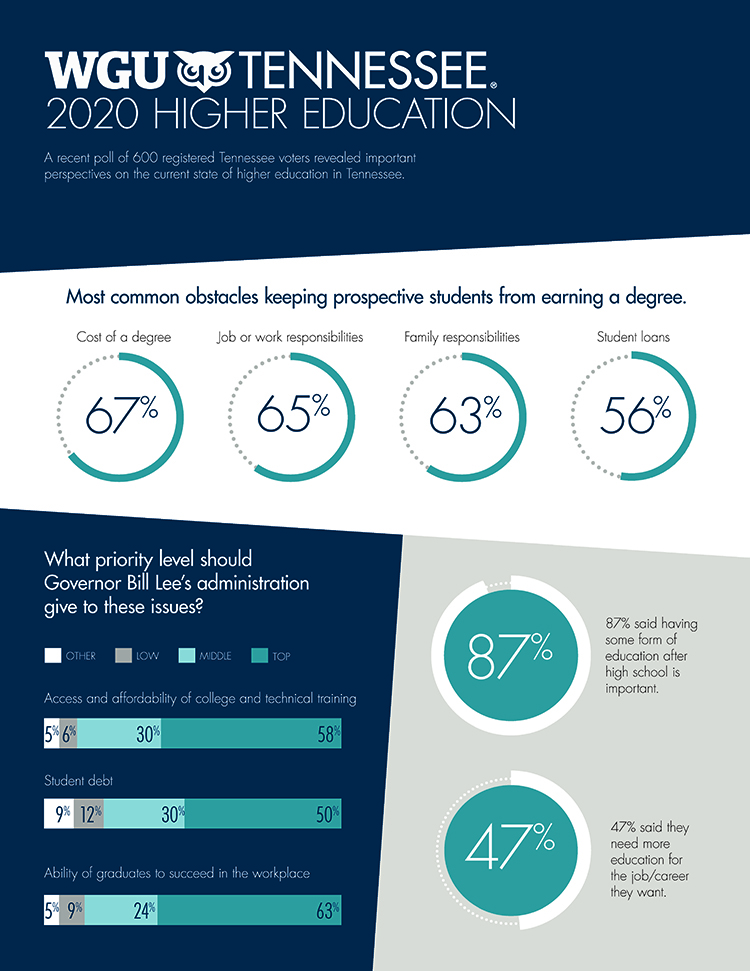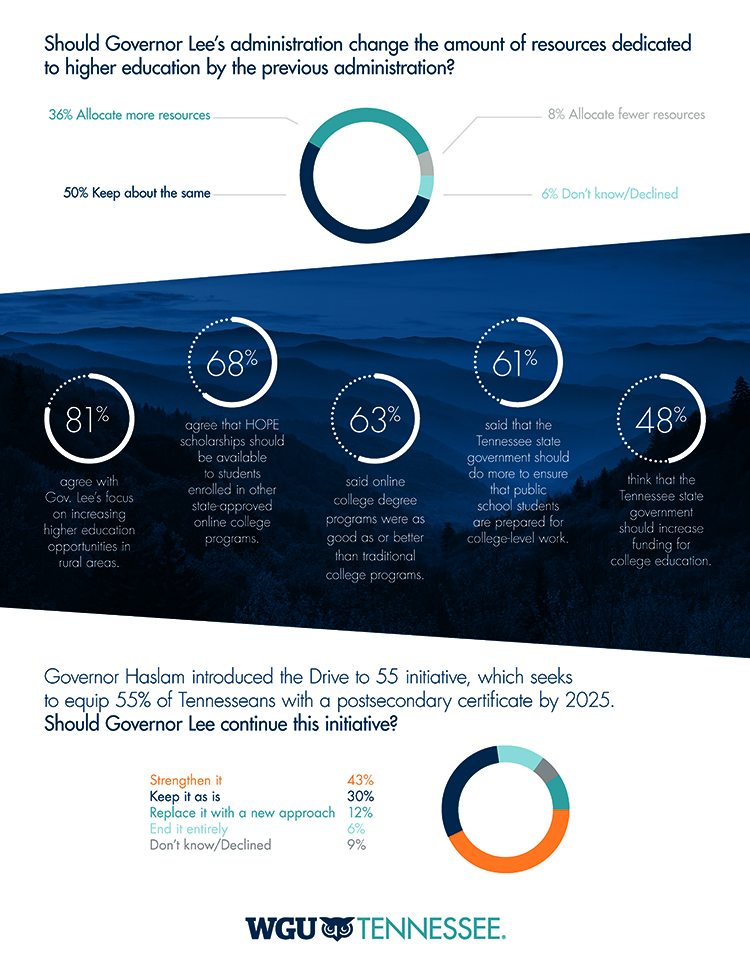By Kimberly K. Estep
Tennesseans remain as committed as ever to expanding access to higher education in our state. According to a recent statewide survey commissioned by WGU Tennessee – the university for which I serve as chancellor – an overwhelming majority (87%) of Tennessee residents believe that having some form of education after high school is important. However, many Tennesseans also face real challenges to earning a postsecondary credential. The overall results of the survey demonstrate that it is time to take even greater steps in education access for Tennessee.
Respondents identified three top challenges to earning a degree: cost, work responsibilities, and family responsibilities. Cost was the biggest factor, according to those who participated in the survey, with 67% citing it as a major obstacle to getting a degree. Next, work responsibilities at 65%. Finally, family responsibilities at 63%.
The rising cost of education has been a constant theme in our state and in our country for decades, and for good reason. We’ve seen costs skyrocket to unsustainable levels, pushing prospective students out of the education market and making degrees unobtainable. Our survey found that 47% of Tennesseans say they need more education for the job they want; but if cost remains prohibitive, these residents may find themselves beyond hope of ever achieving their career goals. This is partly why 36% of respondents believe that Gov. Lee’s administration should allocate more resources to higher education than Gov. Haslam’s, and 48% believe that the Tennessee government should increase funding for college education.
These resources and funding may help to reduce the overall cost of education in Tennessee, but it’s also incumbent upon universities themselves to bring costs down. At WGU Tennessee, we implemented the Responsible Borrowing Initiative (RBI) as one way to address the cost problem. Through the RBI, all students who apply for financial aid receive a personalized financial plan, which recommends that students borrow only what they need to pay tuition and fees rather than the total amount for which they are eligible. Using our “Student Loan Scenario Calculator” – a personalized approach that gives students full visibility of their total student loan debt, including prior college debt, and projected debt at the time of WGU graduation – students can make an informed decision to borrow wisely. Two-thirds of borrowers accept our recommendations to borrow direct costs only, or less. As a result, the average borrowing per year per WGU Tennessee student (of those who borrow) has decreased by more than 40% since 2013.
Work and family responsibilities present challenges to earning a degree as well. When someone works full time or has children in school, for example, it can be difficult to make time during the week to attend classes. Even if the classes are in the evenings, many people simply do not have the time to balance work, family, and education. Because of this, people can find themselves seemingly stuck, the degree they need for a new job or for a promotion always just out of reach.
This is where online education is uniquely positioned to serve. In fact, our survey found that 63% of respondents believe that online college degree programs are as good as or better than traditional college programs. Online education offers more flexibility than traditional programs. WGU Tennessee is 100% online, and we’re competency-based, meaning that students earn credit when they demonstrate mastery of the material instead of when they meet a more time-based “credit hour” standard. This model allows students to do their coursework at their own pace, fitting education into their busy schedules and opening doors to the future.
The survey gave us a window into the priorities of Tennesseans regarding higher education. Some 81% of respondents, for instance, agree with Gov. Lee’s focus on increasing higher-education opportunities in rural areas. That kind of number constitutes a mandate. The results are clear: Tennesseans believe that postsecondary education is important, and they want options. We need to buckle down and find creative ways, as Gov. Lee’s administration has already been doing, to help Tennessee residents overcome the challenges they’ve identified and succeed.
For the full results of the survey, visit tennessee.wgu.edu/survey.



Dr. Kimberly K. Estep is the chancellor of WGU Tennessee, a state-endorsed affiliate of national, nonprofit, accredited Western Governors University. Follow her on Twitter @chancellorestep.